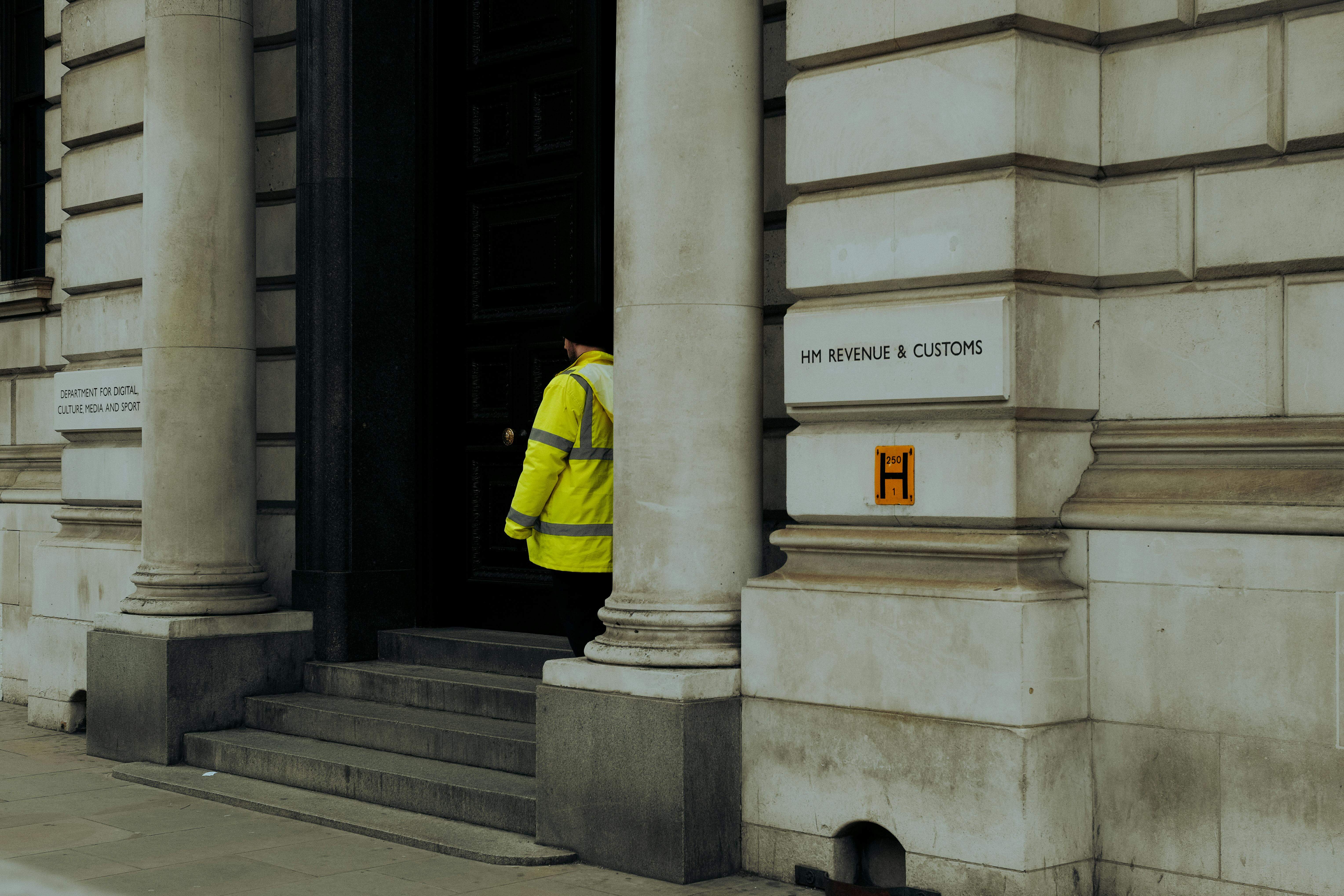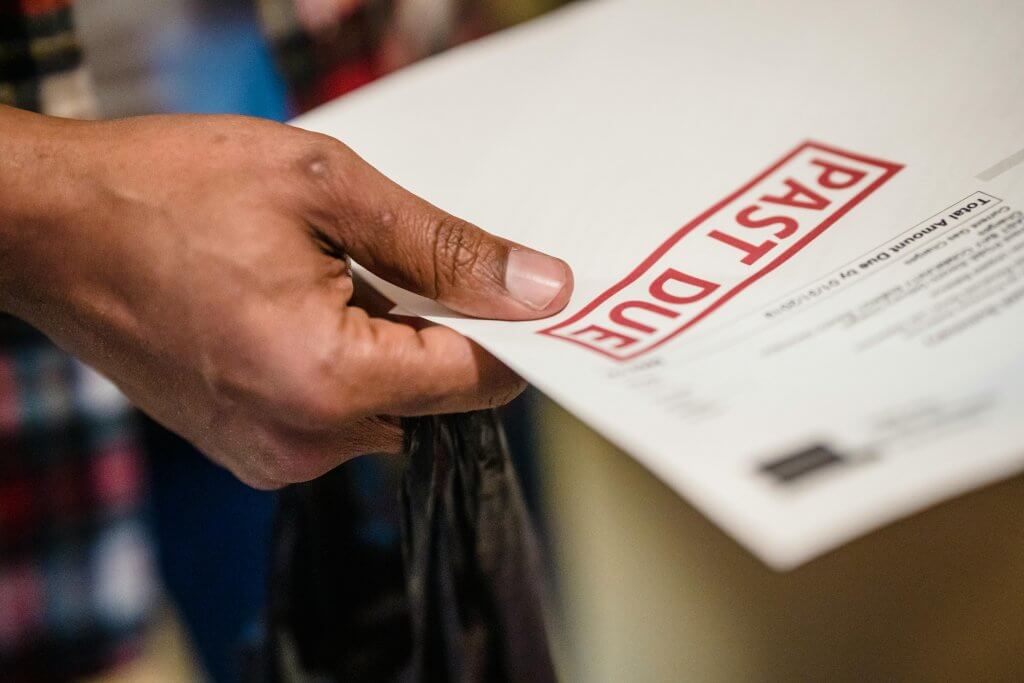If your company owes tax and is struggling to stay afloat, the risk of HMRC taking personal action against you can be a genuine concern.
The answer isn’t black and white. Whether HMRC takes personal action depends entirely on the specifics of your case: how the debt arose, how you’ve handled it, and whether your actions as a director were above board. While limited liability offers strong protection, it has clear limits.
If you’re worried about where you stand, or feel overwhelmed by tax pressure, and you want immediate clarity, give us a call for free, confidential advice. We’ll walk through the circumstances that might trigger personal liability, what HMRC looks for, and how to protect yourself.
Company debt vs. personal liability: where’s the line?
Limited companies exist to protect individuals from the liabilities of their businesses. Under normal circumstances, if a company cannot pay its Corporation Tax, VAT, or PAYE obligations, the responsibility does not fall on the director personally. The company is a separate legal entity, and the debts belong to it.
However, that shield is not impenetrable. Directors can become personally liable in specific situations. For example, if a director has signed a personal guarantee for a loan or lease, the lender can pursue them directly if the company defaults. Similarly, if the company has an overdrawn director’s loan account when it enters liquidation, the liquidator may seek repayment from the director.
Personal liability can also arise from behaviour deemed dishonest or negligent. If a director has engaged in fraudulent trading, wrongful trading, or misused company funds—for instance, spending tax money owed to HMRC on unrelated expenses—HMRC or a liquidator may pursue the director personally.by contacting our experts for free, confidential advice.
HMRC’s powers
HMRC is an assertive creditor. With a backlog of tax debts and a mandate to crack down on fraud, especially Bounce Back Loan misuse, it is showing a greater willingness to take strong action against directors.
HMRC has several enforcement tools at its disposal. It can issue Personal Liability Notices (PLNs) to hold directors accountable for unpaid taxes, especially where deliberate wrongdoing is suspected. It can also require directors to pay security deposits to cover future tax obligations if there’s a pattern of non-payment.
In severe cases, particularly when communication has broken down or fraud is suspected, HMRC can and does initiate proceedings against individuals. While this remains a last resort, it is far more common now than it was a few years ago. Directors who ignore warnings or fail to engage are most at risk.
When could personal liability become a real risk?
There are a number of circumstances that could increase a director’s risk of personal liability. If you used a Bounce Back Loan for personal benefit, or to pay dividends when the company couldn’t afford them, HMRC or a liquidator may argue that the funds were misapplied. Similarly, using VAT or PAYE money to pay other creditors or invest in a failing business could be interpreted as misconduct.
Another red flag is a pattern of repeated non-payment. If your company has a history of falling behind on tax, and you’ve not taken reasonable steps to address it, HMRC may consider you personally culpable. This is especially true if you’re running multiple businesses or appear to be shifting assets to avoid repayment.
Phoenix companies, where a director closes one business and quickly starts another, often using the same staff, premises or customers, can also trigger scrutiny. If HMRC believes the closure was a ploy to avoid tax, they may pursue personal action.
Finally, continuing to trade while the company is clearly insolvent is a major risk. Directors are expected to put creditor interests first once insolvency is likely. Failing to do so can result in personal claims by a liquidator or direct action by HMRC.
What to watch for: early warning signs
Directors often miss the early signals that HMRC is preparing to act. You may receive a letter warning that you could be held personally liable for certain tax debts. Statutory demands in your name, rather than the company’s, are another serious red flag.
If your company receives a winding up petition, and you are named as a respondent, you may be exposed to additional scrutiny. Likewise, any correspondence from the Insolvency Service related to your conduct should be treated as a critical warning. These are signs that your personal liability is being considered, and immediate action is needed.
What action can you take now?
First and foremost, act early. If your business is facing cash-flow problems or struggling to meet its tax obligations, don’t wait for enforcement action. The sooner you speak to a licensed insolvency practitioner, the more options you have.
An insolvency practitioner can assess your risk profile, review any personal guarantees or director’s loan accounts, and identify potential issues before HMRC escalates. Engaging proactively with HMRC can also make a significant difference. It shows that you are willing to cooperate and may result in more flexible repayment terms or a Time to Pay arrangement.
Our team has extensive experience helping directors navigate difficult financial situations and avoid personal consequences. Whether you need help negotiating with HMRC, preparing for liquidation, or exploring business rescue options, we’re here to support you.
What if bankruptcy feels inevitable?
If you’re starting to worry that bankruptcy might be where this ends up, you’re not alone. It’s a fear we hear from directors regularly—and in some cases, it’s a real risk. But it’s not automatic, and it’s rarely the only option.
If you act early and engage honestly, there are often more manageable ways to deal with personal exposure. This might mean negotiating a Time to Pay arrangement, or putting a plan in place to repay funds owed to the company. In some cases, entering a formal insolvency process for the company can even reduce your personal risk.
Could liquidation help protect you?
When HMRC pressure is rising and your company simply can’t pay what it owes, liquidation might feel like giving up. But it could be the most responsible and protective action you can take.
If you know your company can’t recover, entering a Creditors’ Voluntary Liquidation (CVL) allows you to close the business down in a structured, compliant way—before HMRC or other creditors take matters into their own hands.
A CVL can:
- Prevent further build-up of tax debt or late penalties
- Hand over legal responsibility for the company’s closure to a licensed insolvency practitioner
- Reduce the risk of being personally pursued for wrongful trading or tax mismanagement
- Show HMRC that you’re taking the right steps to resolve the situation properly
Directors who continue trading when they know the business can’t pay its bills take on personal risk. But if you close the company through the correct legal channels, and there’s no evidence of misconduct, you’re far more likely to avoid personal consequences.
Can HMRC freeze my personal assets?
Only in very specific circumstances. HMRC would typically need a court order to freeze your personal bank accounts or seize property. This step is usually reserved for cases involving fraud, dishonesty, or when a director is actively obstructing recovery efforts. If you cooperate and communicate, asset freezes are unlikely.
Can I be disqualified as a director?
Director disqualification is only a possibility where misconduct or mismanagement is identified. If the Insolvency Service concludes that your actions harmed creditors or involved dishonest behaviour, they may pursue a disqualification order. This would prevent you from acting as a director for up to 15 years. Seeking help early could avoid this outcome.
Are Bounce Back Loans personally guaranteed?
Officially, Bounce Back Loans were not secured by personal guarantees. They were 100% backed by the government, meaning the lender couldn’t pursue directors personally. However, if the funds were misused, misrepresented in the application, or siphoned off for personal use, directors may be found personally liable for repayment. This is especially true if the company never traded or if the loan was taken fraudulently.
Don’t wait for the knock at the door
HMRC won’t make you personally liable without justification. But they can—and will—when directors cross the line or fail to engage. Ignoring the situation, burying your head in the sand, or hoping it will go away is a recipe for disaster.
We understand the pressure directors are under. We’ve helped countless business owners get ahead of these problems and come out the other side. Whether you need advice, support or just someone who gets it, we’re here.




